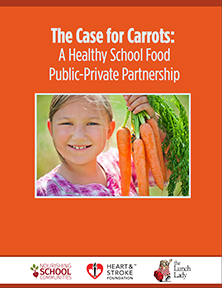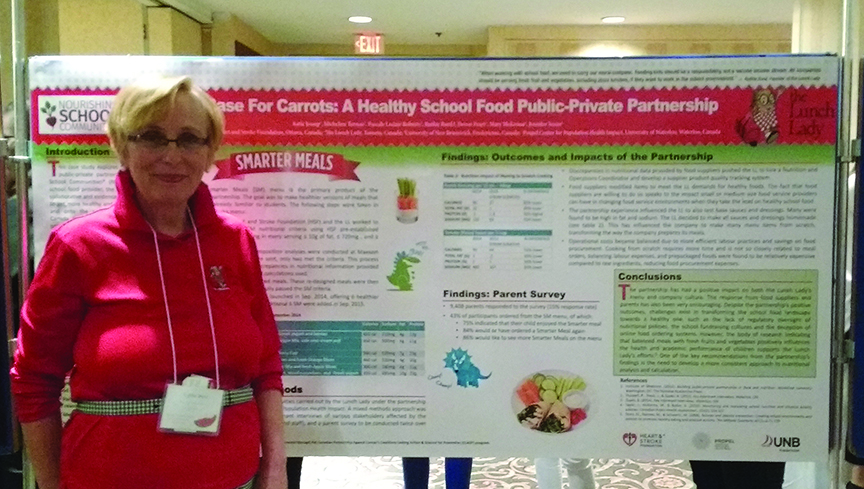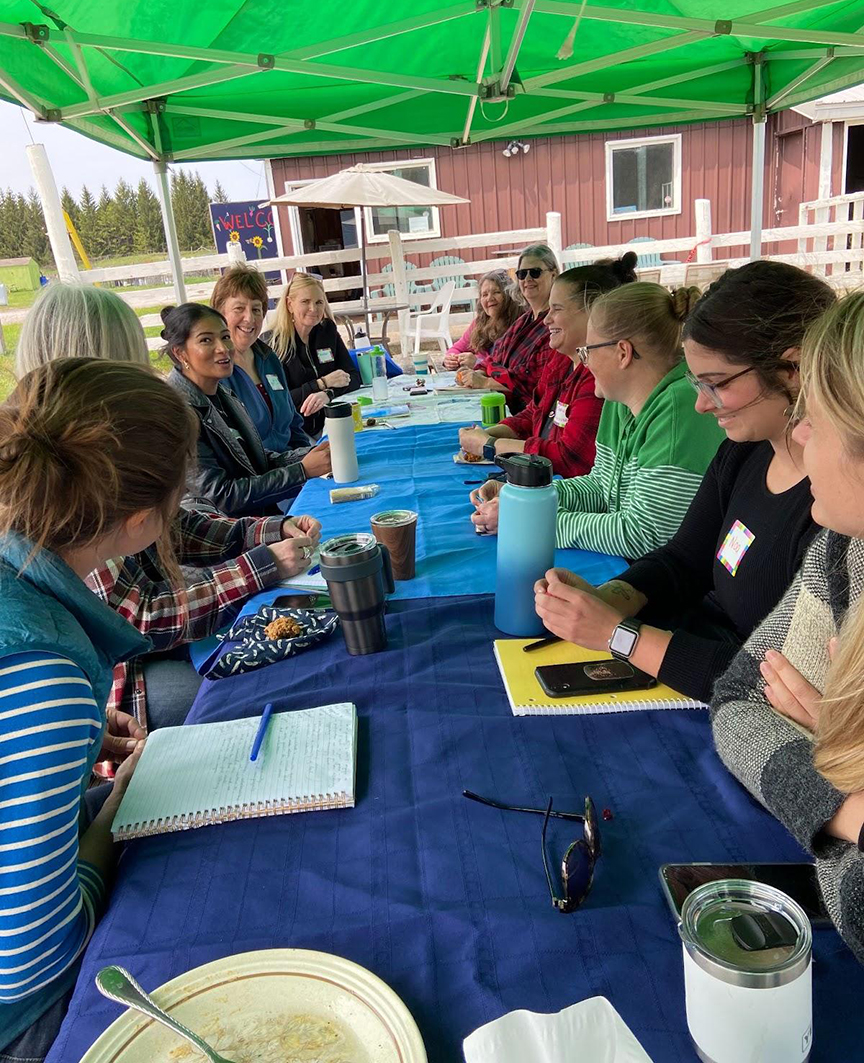 June 2016 – Nourishing School Communities (NSC) partners recently presented a case study and poster on the first two years of a public-private partnership with the Lunch Lady at the Transforming the Food Environment conference in Toronto, Ontario. Founded in 1993 by Ruthie Burd, the Lunch Lady is Canada’s largest privately-owned elementary school food provider. The Lunch Lady caters hot and cold lunches to schools serving thousands of children each day in four provinces through a network of 35 locally owned and operated kitchens.
June 2016 – Nourishing School Communities (NSC) partners recently presented a case study and poster on the first two years of a public-private partnership with the Lunch Lady at the Transforming the Food Environment conference in Toronto, Ontario. Founded in 1993 by Ruthie Burd, the Lunch Lady is Canada’s largest privately-owned elementary school food provider. The Lunch Lady caters hot and cold lunches to schools serving thousands of children each day in four provinces through a network of 35 locally owned and operated kitchens.
The partnership which began in 2013, supported the launch of the healthier Smarter Meals menu. Smarter Meals follow superior nutritional criteria than that of the current school guidelines, in order to offer meals as nutritious as possible for children. Overall, the new menu has been well received by parents and children alike. Survey results from 9,408 parents showed that of those who ordered from the Smarter Meals menu:
- 75% indicated that their child enjoyed the Smarter meal
- 84% would or have ordered a Smarter Meal again
- 86% would like to see more Smarter Meals on the menu
As the Lunch Lady began to consider how many more exciting food options could meet the Smarter Meals criteria, they found that a few sauces and dressings commonly used in their recipes were high in fat and/or sodium. After exploring alternative market options, the Lunch Lady decided to make their own sauces from scratch. This was an important change since these sauces are the base ingredients for a variety of the menu options.
A new organizational system is being introduced in all 35 kitchens, which includes new recipe charts, adjustments to ordering procedures, and new cooking operations. Despite the considerable changes, franchise partners have been very optimistic about these menu changes and very supportive of the transition. Although some costs have increased, operations have become more efficient overall while sales have remained relatively stable. As a result, the company’s financial statements indicate that the move to Smarter Meals has not adversely affected the bottom line for most locations.
“When working with school food, we need to carry our moral compass. Feeding kids should be a responsibility, not a second income stream. All companies should be serving fresh fruit and vegetables, including with pizza lunches, if they want to work in the school environment.” — Ruthie Burd, Founder of the Lunch Lady
Even though the partnership’s outcomes have been positive, challenges still exist in transforming the school food landscape towards a healthier one. Such challenges include the lack of regulatory oversight of provincial nutritional policies, school fundraising cultures, and the increasing adoption by schools of unregulated food ordering systems. However, the body of research indicating that balanced meals with fresh vegetables and fruit positively influences the health and academic performance of children supports the Lunch Lady’s efforts and determination to move forward.1
One of the key recommendations from the partnership’s findings is the need to develop a more consistent approach to nutritional analysis and calculation that can provide a more realistic picture of what is being offered at school and identify where improvements in nutrition can be made. To ensure accurate nutritional information was provided for all the meals, the Lunch Lady worked closely with a dietician and acquired access to nutritional data software.
School food environments are complex and engage diverse stakeholders and influences from region to region. It is only by working together that positive change on school food environments can be achieved and serve the interest of both public and private enterprises to create a healthy school food landscape.
Nourishing Schools Communities is funded by the federal government through the Canadian Partnership Against Cancer’s Coalitions Linking Action & Science for Prevention (CLASP) program. See a complete list of CLASP funded programs.
1Story, M., Nanney, M., & Schwartz, M. (2009). Schools and obesity prevention: Creating school environments and policies to promote healthy eating and physical activity. The Milbank Quarterly ,87(1), p.71-100.





